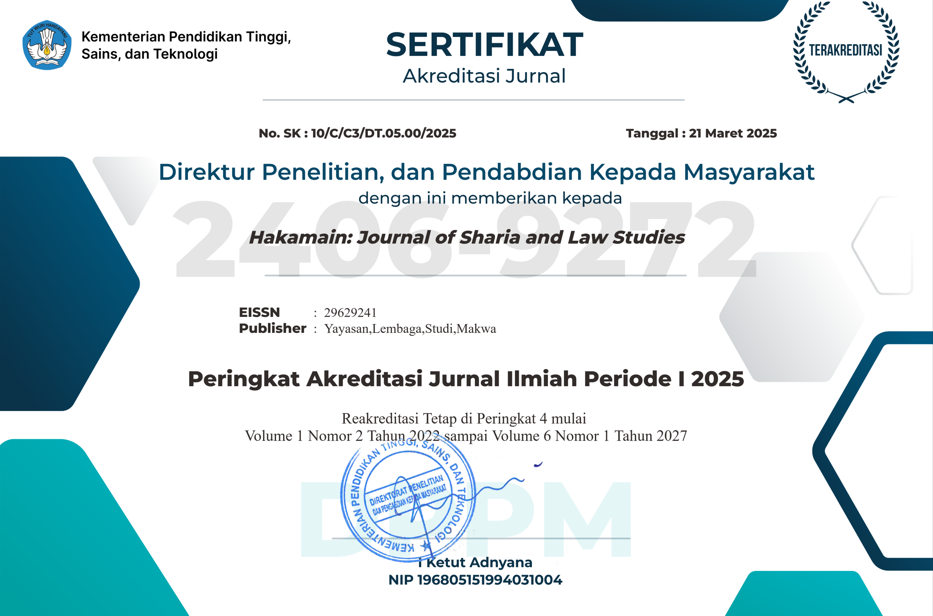Social Transformation of Tompangan Marriage in Contemporary Madurese Society through Islamic Legal Sociology Perspective
DOI:
https://doi.org/10.57255/hakamain.v4i1.1359Keywords:
Islamic Law, Marriage Tradition, Tompangan, Sociology LawAbstract
Abstract: This research aims to analyze the social transformation of the tompangan marriage tradition in the contemporary society of Bragung Village through the lens of Islamic legal sociology. The study explores how this unique marital practice—where monetary value is converted into goods as part of the marriage agreement—has evolved in response to changing socio-cultural and religious dynamics. Employing a qualitative field research method with a sociological approach to Islamic law, data were collected through in-depth interviews with community leaders, religious figures, and married couples, as well as through direct observation and documentation of local practices. The findings reveal that the traditional practice of tompangan, which was once a symbol of communal prestige and obligation, has experienced significant shifts in meaning and implementation. Economic modernization, individualistic values, and increasing awareness of Islamic legal norms have contributed to the transformation of tompangan from a collective social expectation into a more personalized, negotiable aspect of marriage. It has also led to debates around its compatibility with Islamic legal principles, especially concerning fairness and avoidance of burdensome dowries. The study concludes that the practice of tompangan in Bragung Village demonstrates the fluidity of customary law when interacting with Islamic jurisprudence, showing that Islamic legal norms are not static but responsive to social change. The academic contribution of this research lies in its demonstration of how Islamic legal sociology offers a robust analytical framework for understanding the interplay between tradition, religion, and social transformation in marriage practices in Muslim-majority societies.
Downloads
Published
How to Cite
Issue
Section
Citation Check
License
Copyright (c) 2025 Ilham Maulana, Yunia Kartika

This work is licensed under a Creative Commons Attribution-ShareAlike 4.0 International License.






